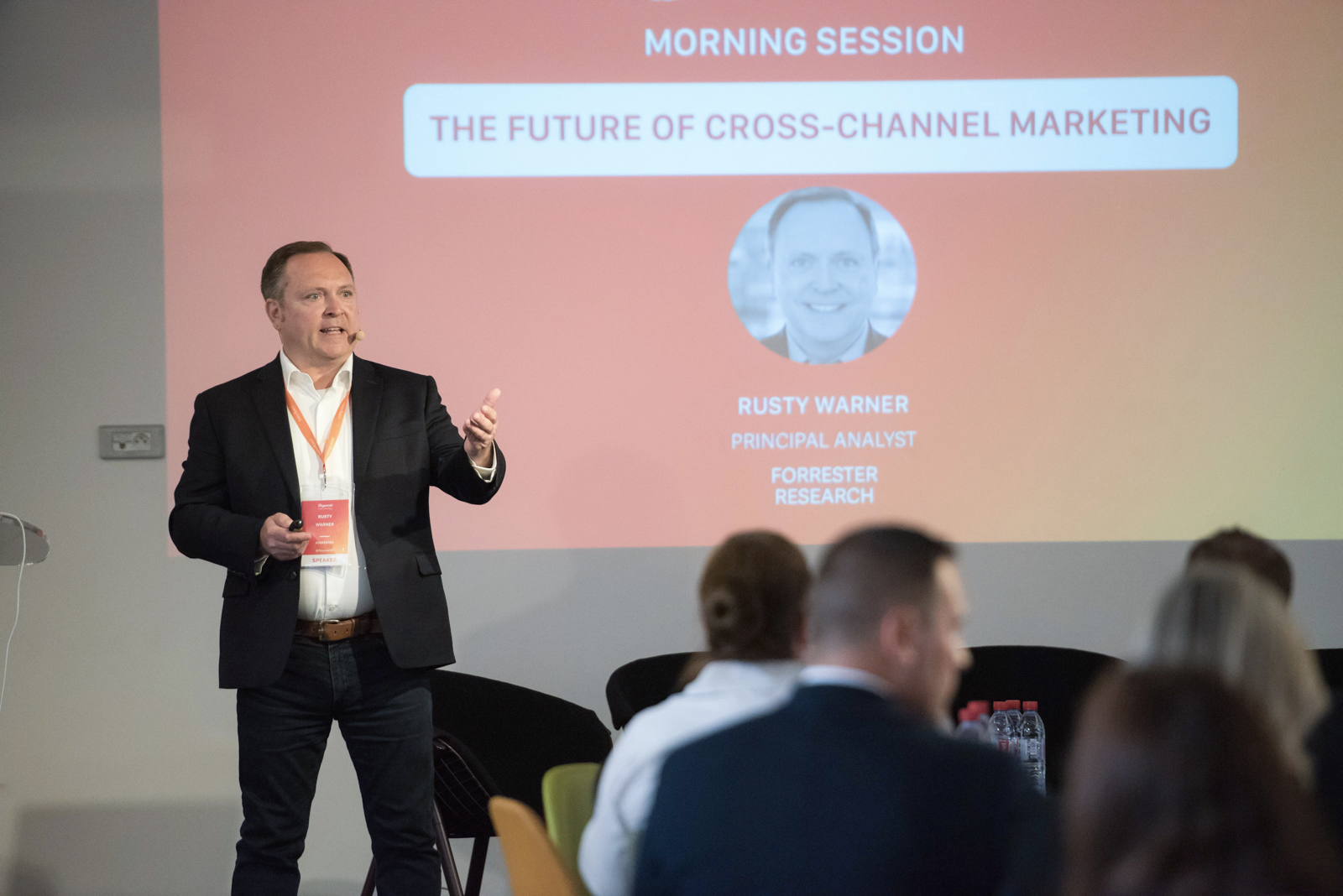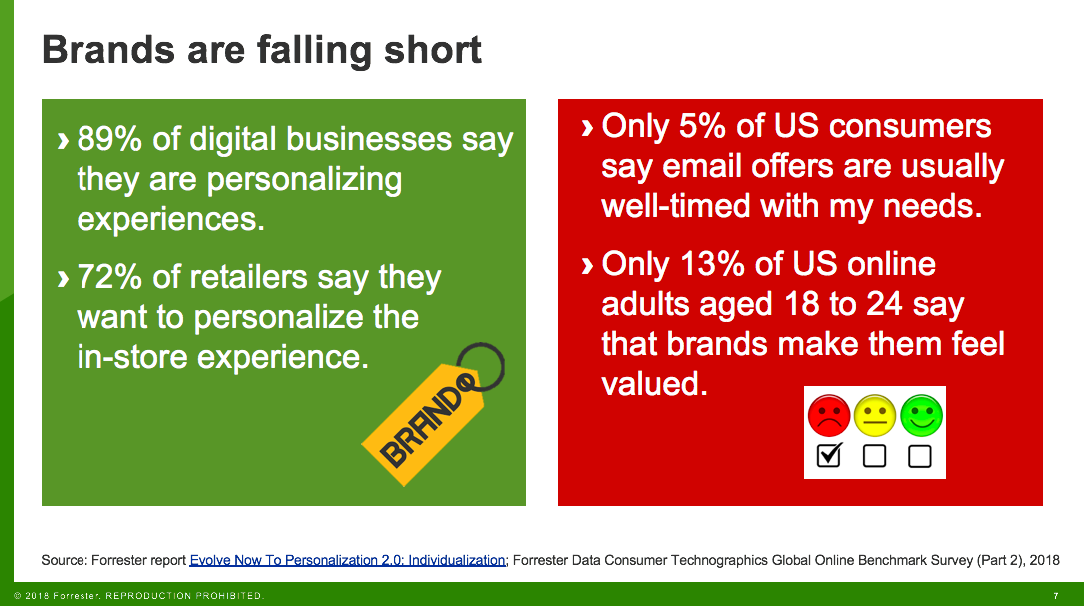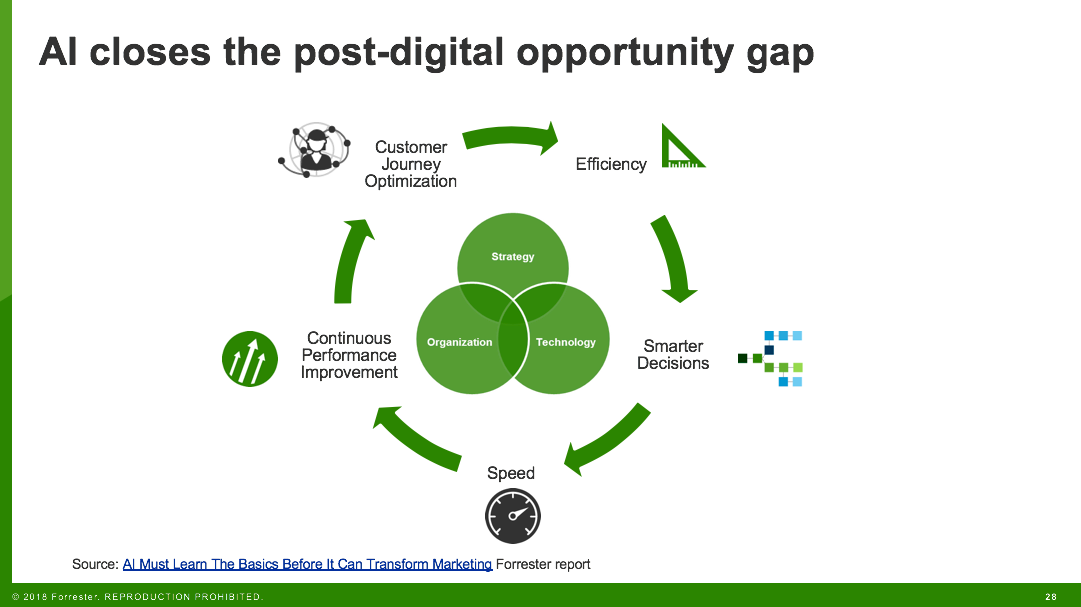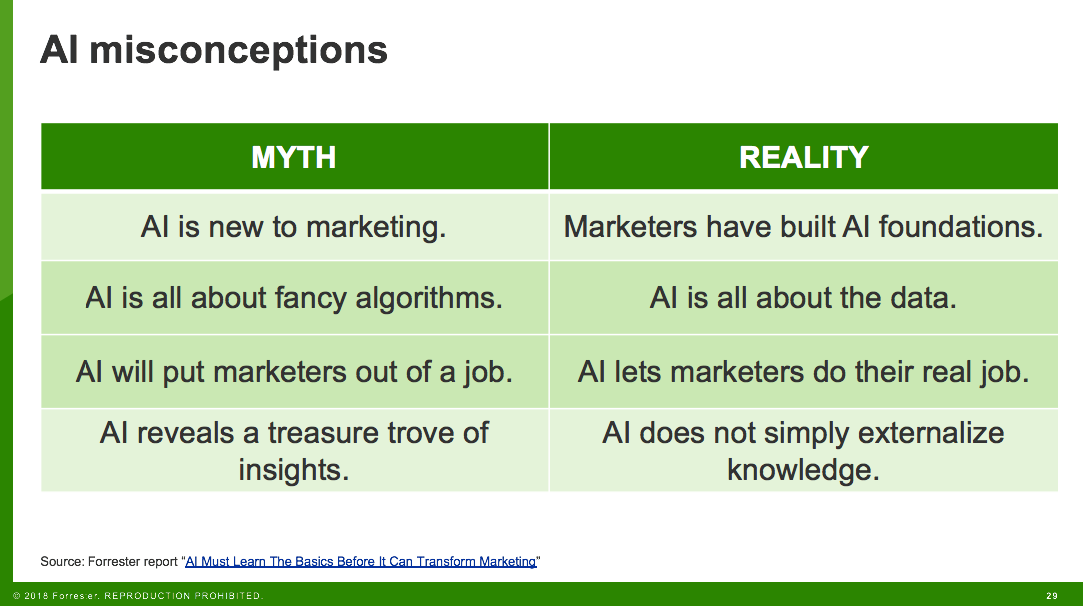The Future of Cross-Channel Marketing


Catégorie : Tendances marché
Rusty Warner, Forrester’s Principal Analyst, gave an illuminating talk about the Future of Cross-Channel Marketing. Attendees of Tinyworld, Tinyclues’ first global user conference, were treated to an overview of today’s marketing trends, with insight into the transforming digital landscape and how marketing organizations can succeed by leveraging AI. He offered ways to maximize impact of technology and team effectiveness while embracing the coming change.

The talk was largely about change, both micro and macro, but was rooted by the idea that despite change, there are always ways to provide value for your customers. Campaigns have been said to be “dead,” but instead, they should evolve to provide more immediate value.
What it takes to create a high-value campaign is relevance to what the customer needs and wants. B2C marketers know this intimately, and 89% of digital businesses say that they are “personalizing experiences” for their customers. The desire to make campaigns relevant and engaging is there, but the results are not. Only 5% of US consumers say email offers are usually well-timed with their needs.

How does a marketing organization create value? Forrester anchors its answer in the idea that creating and driving “Customer Obsession” brings the most value to both the organization and, perhaps more importantly, the customer.
The expectations of what a marketing team delivers is changing and growing along with the market and technology they support. The marketing team is more highly valued than it ever was in the past, with more responsibilities and challenges than ever before.
Where does AI come in? AI helps address the gap of where companies are today and what they are trying to accomplish long term. It will support companies in their digital transformation and enable marketers to be more customer centric in the future. AI closes the gap between human cognitive ability, and what the organization needs to better address their customers.

Rusty Warner discussed how all goals eventually support customer experience, whether the goal is to be more efficient, make smarter decisions, or to close the loop and continually optimize. Organizations are at different stages in their evolution, and this will impact where technology is deployed today, to where it may evolve to and where it can be used down the road.
Will AI replace marketers? As Rusty Warner points out, there are a lot of misconceptions on AI. Some may be scared of AI, but AI isn’t new to marketers as they have already built the foundations to leverage AI (customer databases, customer interaction strategies…).
AI will help marketers focus on their real job, to think about customer experience, the right creative strategy… and they will leverage AI for tasks outside human cognitive ability (processing data, finding the right audience etc.).
AI is about the math; but people tend to focus on the algorithms, when in fact they should be focusing on the data. In order to leverage AI, marketers need to understand the data. While 73% of companies aspire to be data-driven, only 29% report being good at turning data to action.

Splio directly addresses this challenge of turning data-to-action by turning raw, first-party data into actionable, campaign intelligence.
The Future of Cross-Channel marketing requires us, as marketers, to evolve and technology must rise to meet that evolution.
Rusty closed the session with this: “Tinyclues (now Splio) wants to look ahead to the right mix of people & technology to solve problems that will exist 2-3 years in the future. That’s really one of the things I love about them.”
Sommaire